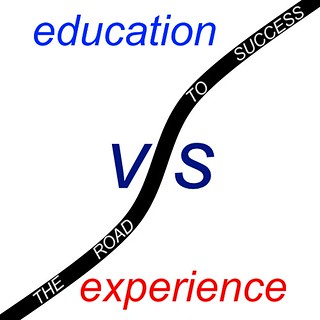 The high school graduation rate in Chicago as of the last full
year of available records. (2012-2013) supposedly 63%, which is far from the national
rate of 81 %.
The high school graduation rate in Chicago as of the last full
year of available records. (2012-2013) supposedly 63%, which is far from the national
rate of 81 %.
However, according to an investigation done by National Public
Radio (NPR), the news might not be quite as sunny and cheerful as the headlines
would indicate. Graduating more students isn't really a positive accomplishment
if the graduates in question are making it out the door on a technicality and
are not prepared for either college or a job. And in Chicago, that seems to be
the case far too often.
First of all, the "percentage who graduate" isn't
accurate if you mislabel a lot of the dropouts.
Basically, we found that many high schools in the city were
mislabeling students when they left. They were saying they were moving out of
town or going to private schools when, in reality, they were enrolling at the
district's alternative schools or, in some cases, GED programs. This makes it
look better than it really is because mislabeling those students makes them
disappear from the denominator.
But even the ones who stick around and graduate were frequently
getting credit for work which was dubious to say the least. Many students
achieved the required minimums through "credit recovery." This
process allowed students who failed required courses to "retake" the
class at home and/or online with limited teacher supervision and far fewer
questions to answer.
Plenty of cities are apparently using similar tactics to Chicago.
Camden, New Jersey has an interesting optional program for kids who fail their
finals. They get to try again with a substantially easier course.
In New Jersey, if you fail the first-round high school exit exam,
there's a second exam you can take — an easier one. It's untimed, and it
consists of just one single question per subject. In Camden, half the senior
class failed not just the first test but the second one too.
In New Jersey as in many states with grad exams, there's a Plan B.
There's an appeals
process. And students can submit samples of work they did in class
to the state. It can be a single, graded algebra problem or a persuasive essay
with a teacher's comments on it.
That "Plan B" was apparently used by nearly 1,500
students in New Jersey alone. Good work if you can get it, as the saying goes,
but are these students in any way ready to succeed in either academia or the
work force? It doesn't sound like it.
Illinois Policy says that even that story doesn't tell the whole
tale when it comes to Chicago.
Unfortunately, these requirements are not rigorous. In fact,
students can fail one of four core classes (English, mathematics, science and
social sciences) each year and still advance to the next grade level. They also
only have to garner just a D in each class they take to earn the 24 credit
hours they need to graduate.
It's important to remember what a graduation rate doesn't tell us
— namely, how prepared the graduating students are for college. On that front, the Chicago Public Schools (CPS) and the Chicago Teachers Union (CTU) are failing miserably.
According to a recent report, 45 percent of CPS graduates begin
their senior year not doing well enough academically to attend a four-year
college. In the fall after graduation, the most common outcome for these
students was to be neither working nor in school.
NPR also showed the opposite side of the coin when they explored
the state with the highest graduation rate in the country, Iowa at 90%. There they
talk about a number of programs which Iowa has used to keep kids in the
classrooms, including free day care, food banks, smaller classes and flexible
hours. Those all sound great, and if the districts can manage the funding
there's plenty to like about them.
But at the same time, nothing is ever going to replace a solid
home life and parents who make sure that their kids get out of bed in the
morning; make sure they make it to school; check on their progress regularly; and,
help them with their lessons and discipline them when needed. Maybe there is
simply more of that in Iowa?
That would be nearly impossible metric to quantify, but I wouldn't
be at all surprised. Government can provide education as a form of supplied
services, but they can't force it on anyone. That happens from the bottom up.
And for too many kids in Chicago and many other large cities, that's clearly
not happening. The sad result is that a lot of those children will never really
stand a chance later in life.
Your Thoughts. Leave Your Comments Below.











